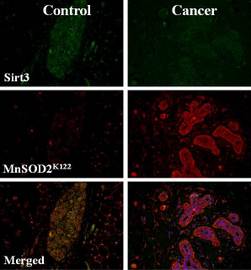
A group of investigators including Northwestern Medicine scientist David R Gius, MD, PhD, professor in Radiation Oncology, has discovered how an anti-aging gene directs the cellular response to DNA damage.
Published in the Proceedings of the National Academy of Sciences, the findings explain the role that sirtuin 2 (SIRT2) plays in regulating a cell’s ability to recover from stress.
“The study suggests that sirtuin, which genetically and biochemically plays a role in directing the aging processes in mammals, also regulates the accumulation of DNA damage,” said Dr. Gius, a member of the Robert H. Lurie Comprehensive Cancer Center of Northwestern University. “Without it, the damage continues to mount.”
At Northwestern University Feinberg School of Medicine, the Gius lab is focused on the connection between aging, cellular metabolism and cancer.
“As we get older, the DNA damage incurred in our cells increases. When that damage is greater than the cells’ ability to repair it, we show the effects of aging and eventually die,” Dr. Gius said. “We’re interested in exploring the processes that govern longevity in an effort to understand the genetics of aging and how it induces cancer.”

Two years ago, Dr. Gius published a paper illustrating that mice lacking the mitochondrial sirtuin, SIRT3, developed tumors, thereby defining it as a tumor suppressor. The lab has also shown that female animal models lacking SIRT2 develop breast cancer, while males develop gastrointestinal tumors, though the reasons remain unclear.
“By working to deduce the mechanisms at play, we can identify molecular biomarkers and potentially develop new therapeutic targets and interventions,” Dr. Gius said. “Solid tumors are an illness of the elderly, so it’s no surprise that we’ve shown anti-aging genes to be anti-cancer genes.”
Dr. Gius will continue to study the genes, also known as fidelity genes because of their role in maintaining the structure of the genome, in an effort to validate the connections between aging and tumor growth.
“Ultimately, sirtuins direct how long members of any species live,” Dr. Gius said. “The goal is to genetically and biochemically connect the well-established observation that cancer increases significantly as a function of increasing age.”
The work was supported by National Institutes of Health grants CA152601-01, CA152799-01A1, AG032375, Department of Defense grant BC093803 and a grant from the Paul F. Glenn Foundation.






